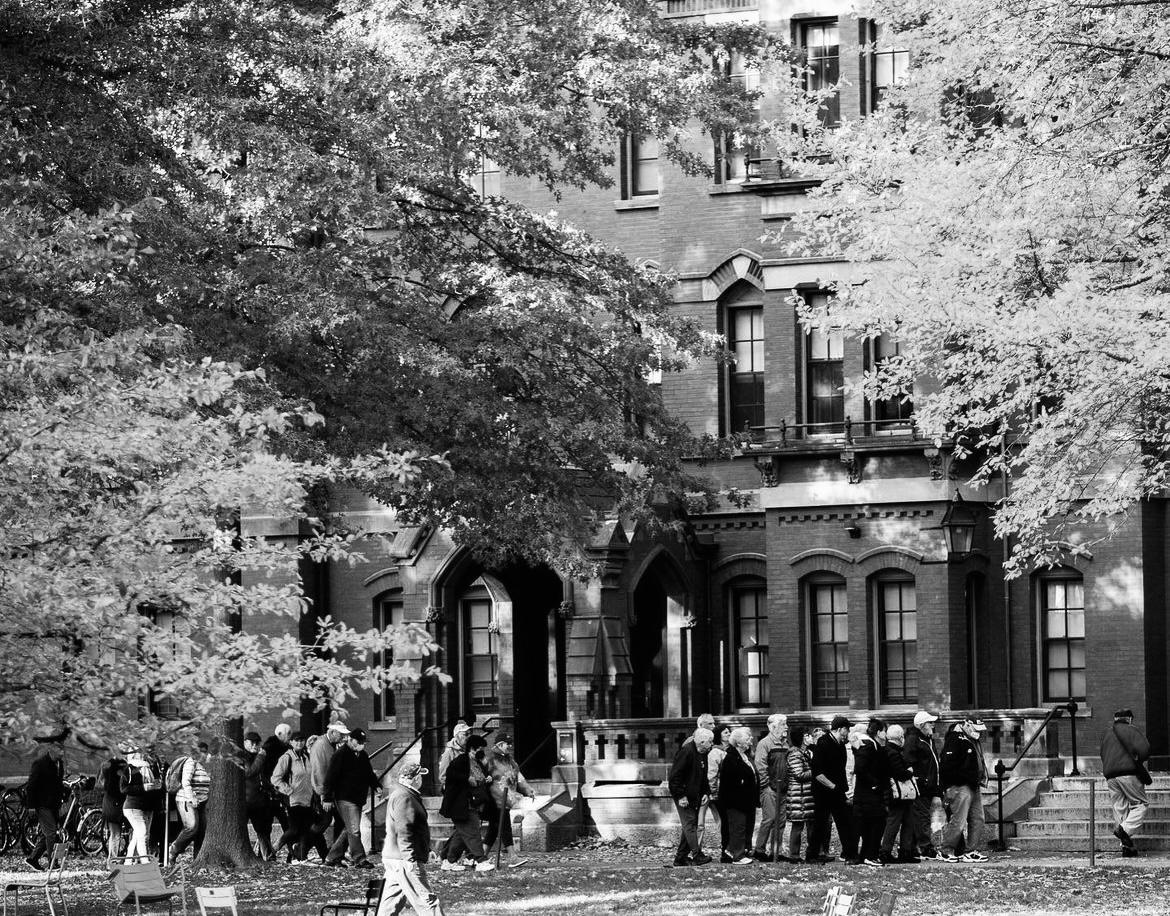
4 minute read
See News
from Volume 60 Issue 9
Volume 60 Issue 9 ◆ NEWS ◆ The USD ViSTa The Supreme Court revisits affirmative action
LUCAS HODSON ASST. NEWS EDITOR
Advertisement
ABIGAIL CAVIZO NEWS EDITOR
Affirmative action is a program conscious of students’ race when individuals apply for college. Race is considered in the application process, because by – recognizing it — this program is acknowledging the racial barriers students may or may not have faced in their educational endeavors. Beginning in the late 1960s and 1970s, universities started to implement affirmative action into their admission decisions. On Monday, Oct. 31, 2022, The Supreme Court started hearing arguments about whether race should play a role in college admissions through the policy of affirmative action, but it has not yet made a decision on the cases. The Court will hear two separate cases, one from Harvard University located in Cambridge, Massachusetts, and another from the University of North Carolina. These schools were chosen because the challengers, in these cases, stated that the schools violate equal protection principles and that they discriminate against Asian American students. Both schools claim that a diverse student body is necessary to achieve their educational mission. Eight states have banned affirmative action from being used for admission to colleges: Arizona, Florida, Idaho, Michigan, Nebraska, New Hampshire, Oklahoma and Washington. USD sophomore Julia Swenson-Wilker stated that, while race can be important in background and identity, it should not take precedence over qualifications. “I don’t think race alone should be a deciding factor, but what they have been through, where they are from and other factors like that should be considered,” Swenson-Wilker said. First-year Ryan Clemens thinks minority students are at a disadvantage because of the American public school system. “I think that the stats show the issue with the school system in America. Depending on the neighborhoods and wealth/ class people grow up, they are given less opportunities and are already starting at a disadvantage,” Clemens said. USD sophomore Christian Thames stated that while USD is predominantly white, they do offer a lot of programs for minority students. “USD is a private school and the price is up there, and I would say that it definitely prevents minority students from being able to attend as much as they want to. Besides lowering tuition and making more viable programs for minority students, I don’t know of anything else they can do to make the school more diverse,” Thames said. “They do provide a lot of support for different multicultural groups on campus and that is something that is beneficial.” California is not one of the eight states that ban affirmative action. USD Admissions states on the USD website that they have a holistic application process. USD gave a statement about their application process: “The University of San Diego (USD) places great value on having a campus community with a rich diversity of people and ideas and supports our role as a contemporary Catholic institution. USD follows a holistic applicant review process that allows the admissions staff to evaluate each individual thoroughly, valuing both academic accomplishments and personal qualities and stories, to the fullest extent allowed by law.” If the Supreme Court removes affirmative action, colleges such as Harvard and UNC assert that there will be a drop in Black and Hispanic students going to their schools. They also stated that race is almost impossible to eliminate in the decision process, because many of their students’ identities come from their race or ethnicity. Their argument pulls from an overarching debate about ‘colorblind racism.’ This term refers to viewing people of color without their race in mind, minimizing the experiences they may have endured due to the color of their skin. While California will not be affected, many schools and minority students could be impacted by the decision about affirmative action. The Supreme Court is likely to come to a decision about affirmative action sometime in 2023.
USD students discuss possible implications
Harvard University is one of the colleges that the Supreme Court is hearing about affirmative action. Photo courtesy of @harvard/Instagram

Supreme Court Justice Clarence Thomas spoke out against affirmative action.
Photo courtesy of @mercurial_era/Instagram

The USD Vista
Editorial – 619.260.4584 Business – 619.260.4714 www.uofsdmedia.com / @TheUSDVista
Karisa Kampbell - Editor-in-Chief Olivia Synek - Associate Editor Mei Flory - Managing Editor Colin Mullaney - Copy Editor Libby Budenholzer - Art Director Abigail Cavizo - News Editor Maria Simpson - Opinion Editor Haley Jacob - Feature Editor Jessica Mills - Arts & Culture Editor Savannah Alarcon - Sports Editor Paul Tuft - Distribution Manager Isabella Sanchez - Social Media Manager Brendan Ridge - Finance Manager Anna Hallock - Advertising Manager Gina Lew - Student Media Advisor Marie Minnick - Operations Advisor
The USD Vista publication is written and edited by USD students and funded by revenues generated by advertising and a student fee. Advertising material published is for information purposes only and is not to be construed as an expressed or implied endorsement or verification of such commercial venues by the staff or University. The USD Vista office is located on the fourth floor of the Student Life Pavilion in room 403B. All inquiries should be sent to:
The USD Vista 5998 Alcala Park San Diego, CA 92110
Opinions expressed in this publication are not necessarily those of The USD Vista staff, the University of San Diego or of its student body.
Letters to the Editor can be submitted to The USD Vista office. Letters should be limited to 300 words and must be signed. For identification purposes, USD identification numbers and writer’s year must be included in the letter. The USD Vista reserves the right to edit published letters. Any content sent to the editor will be considered for publication unless otherwise stated.


